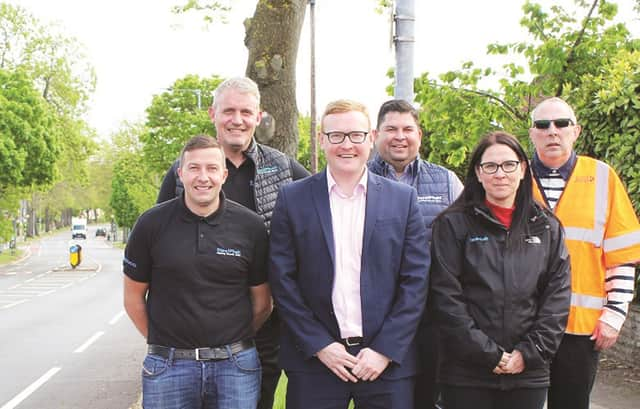UK’s first carbon negative road


ASPHALT made partly from trees was used when Broom Lane was resurfaced — making it the UK’s first carbon negative road.
Rotherham Council trialed the pioneering new substance, which was created at Templeborough-based firm SteelPhalt.
While the company’s asphalt contains 95 per cent recycled aggregate, usually the remaining five per cent is bitumen — the “glue” which holds the holds the aggregate together.
Bitumen comes from the processing of oil and consequently has a significant carbon footprint.
The new asphalt uses a natural binder called kraft lignin, which originates from trees and could reduce the climate impact substantially over the life cycle of the road.
Julian Smith, SteelPhalt strategic growth director, said: “In our journey to become the world’s most sustainable asphalt supplier, this is a huge step forward.
“This product is an example of what our team’s collective passion for innovation and sustainability can deliver, while making the world a greener place.”
The work at Broom Lane is part of the council’s “£24 million to 2024” road improvement scheme, which was launched in 2020.
Year three of this project has just started, with 193 roads — totalling 34.1 miles — to be resurfaced at a cost of £10.9 million.
Cllr Dominic Beck, RMBC cabinet member for transport and environment, said: “As a council, we are determined to take positive steps to mitigate the impact of climate change.
“Working with our partners to use innovative new products is a significant step forward in becoming a greener council and reaching our target to reduce the council’s carbon emissions to be at net zero by 2030.”